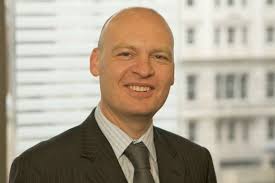
There has been a significant rise in the number of people who are making their own financial decisions without taking advice. There isn’t much you can’t do yourself now. You can invest in pensions and ISAs, buy property, take out life assurance and income protection, buy an annuity and even go into income drawdown or purchase high risk venture capital trust or enterprise investment scheme products.
Is DIY finance a good idea?
It is a positive that people are able to make their own decisions and have plenty of options about where they do this. We are also seeing more price competition which should hopefully mean they pay less. However, the risk is that they get it wrong and if that happens they will have nobody they can blame but themselves.
Check if property will deliver a retirement income
The Retail Distribution Review, launched at the beginning of 2013, changed the way that financial advisers work. There have been many positive aspects to this including advisers having to be better qualified and increased transparency over how they charge and what clients get in return.
However, it has also meant that many people are now unable to access good quality independent financial advice or it simply isn’t cost effective for them to do so.
What financial planning do you need to do?
For many people financial planning should consist of paying off debts, building cash savings, paying off their mortgage, joining their company pension scheme, checking what protection benefits are offered by their employer and if they have spare money they could look at investing in a stocks and shares ISA in a diversified equity, multi asset or tracker fund. In these cases there might not be the need to pay for a financial adviser.
Do you have a property? Check if it will deliver a retirement income
Why do I need professional financial advice?
Many people will need one off pieces of advice if they are, for example, taking pension benefits, making investments or protecting their income or family. Many others will need ongoing advice where they have larger investment portfolios, perhaps including properties, or higher earnings and need to achieve suitable diversification and tax efficiency. To ensure they make the right decisions, these people should be prepared to for pay for advice.
Execution-only firms (ie ones that don't give individual advice) can try to convince people that they don’t need advice, perhaps just a little bit of guidance or research to point them in the right direction. There are huge risks here.
At Chase de Vere we’ve come across people who have, for example, taken out single life annuities when there is a dependant spouse who might need income in the future, or not put life assurance policies into trust so that benefits can be paid quicker and aren’t liable to inheritance tax, or have transferred a pension to a ‘low cost’ SIPP and lost valuable benefits or guarantees as a result, often without even knowing it, or are taking too much or too little risk with their investments, or don’t have their finances structured tax efficiently.
Undoubtedly some people can make their own financial decisions, especially if their requirements are fairly basic. However, for those facing important financial decisions or where they will be relying on their assets to provide for them or their families in the future, the safest approach is to take independent financial advice.
Need more help? Investing in property for your retirement or thinking of investing in property versus a pension?
Then read Chase de Vere's checklist:-
Check if your property will deliver a retirement income
 |
XXX | This is a guest article by Patrick Connolly from Chase de Vere |